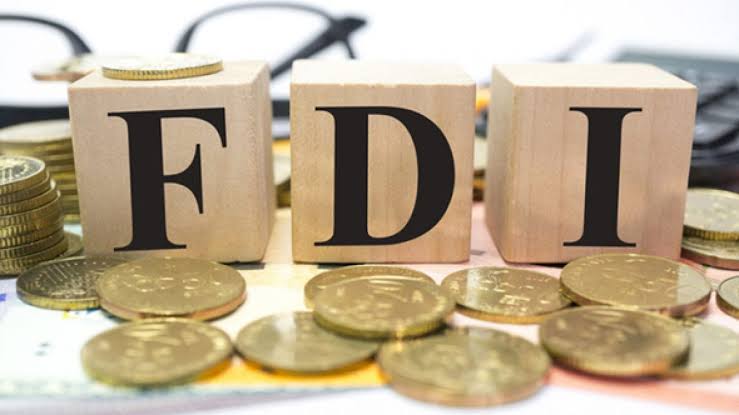Staff Correspondent
Published:2024-11-05 02:46:59 BdST
FDI drops to 8.8pc in FY24 due to election, exchange rate fluctuations
The inflow of net foreign direct investment (FDI) declined by 8.8% in FY24 due to various factors, such as investment uncertainties amid election year (12th national election), its reactive effects that included subsequent political unrest and fluctuating exchange rates.
Experts also cite the downgrading of the country's credit rating and fragile foreign reserve situation as other reasons behind this decline in FDI.
Bangladesh Bank’s latest report showed that net FDI inflow dropped from $1.609 billion in FY23 to $1.468 billion in FY24, a decline of $142 million year-on-year (Y-o-Y.)
Net investment is the amount remaining after deducting repayments of previous investments from the total foreign investments received during that period.
Country-wise FDI
Bangladesh got the highest FDI from UK, China, Korea and India in FY24.
FDI from the UK was $506.53 million, whereas China’s investment was $283.56 million and the Republic of Korea was $246.35 million respectively.
India was the fourth highest investor with $132.83 million.
During this time, Norway, US, Singapore and Sri Lanka invested $94.43 million, $93.70 million, $89.28 million, and $88.67 million respectively.
Among them, FDI from the US declined in the first half of FY24, dropping from $3.94 billion in December 2023 to $1.02 billion by June 2024.
Data shows that apart from the US, FDI from the UK, Singapore, and South Korea, also fell over the past six months.
Sector-wise investment
Data showed that the textile & weaving sectors attracted the most investment, followed by banking, pharmaceuticals and chemicals, gas & petroleum, and telecommunications.
In FY24, the highest investment was in the textile and weaving sector, amounting to $435.78 million.
The banking sector was in second position with $229.73 million in investments.
Pharmaceuticals & chemicals got $123.79 million, gas & petroleum $117.24 million and telecommunications received $102.92 million.
Reinvested earnings
Bangladesh Bank’s latest data showed that reinvested earnings fell by 21.97% YoY.
According to data, reinvested earnings accounted for $614.93 million of net foreign direct investment in FY24, which was $788.08 million in FY23.
A total of 42% of net FDI in the first nine months of FY24 came from reinvested earnings.
This indicates that a sizable amount of the nation's FDI intake came from returns on previous foreign investments that were reinvested in the country.
Experts
Economists and bankers said that economy has been facing multiple crises over the past few years, resulting in a decline in foreign investment for several reasons.
Political turbulence associated with the election and serious foreign exchange rate depreciation have hindered FDI in FY24.
The political violence during October 2023 and the associated turbulence did create serious uncertainty within the economy, which is expected to have implications for FDI.
Furthermore, given there was uncertainty concerning where exactly BDT will stabilize against the USD, it is natural for foreign investors to hold back investments until unless the exchange rate stabilizes.
Over the last two and half years, the Taka has lost almost 35% value against US dollar, which did create uncertainty concerning when the Taka will restabilize.
This, to some extent, has occurred now which is a direct dividend of contractionary monetary policy and quasi-market-based exchange rate management, and FDI could improve in FY25 provided we can ensure and improve political stability and law and order.
CEO of Standard Chartered Bank Bangladesh Naser Ezaz Bijoy, said “FDI inflows often slow down during election years, and the general election in Bangladesh in January 2024 has probably added to this pattern, which continued with political unrest,”
“Political conditions in the country deteriorate before and after the elections, and foreign investors observe these factors. Investment sentiment has also been impacted by the dollar crisis, which started in the middle of 2022, and the depreciation of the Taka. Foreign investors think about whether they can get their money back.”
“Last but not least, investment patterns have been adversely affected by declining credit ratings from international agencies, since it had a negative effect on risk-adjusted return on investments,” Bijoy added.
Unauthorized use or reproduction of The Finance Today content for commercial purposes is strictly prohibited.


